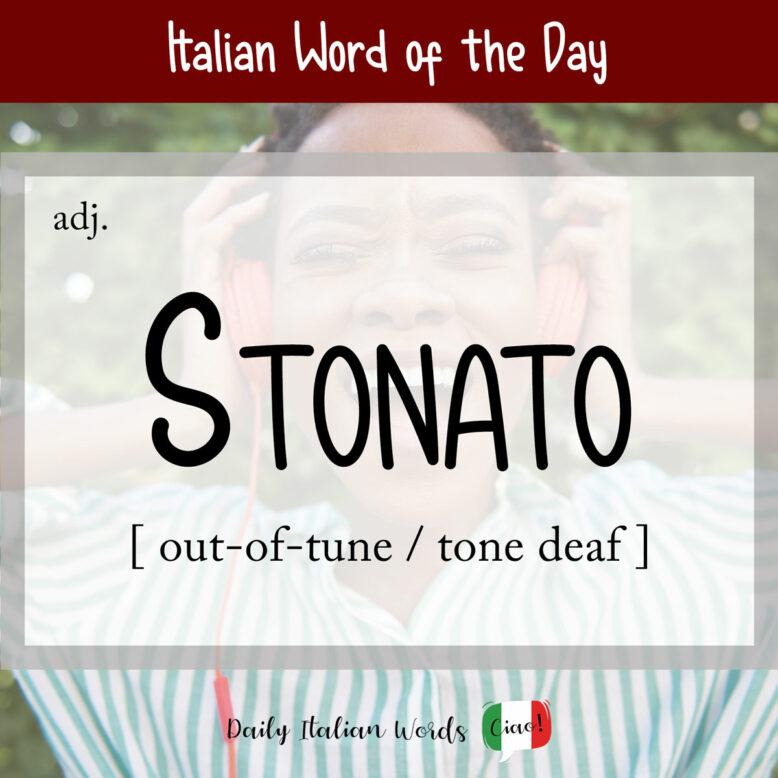The adjective stonato comes from the verb stonare which means to sing / play out of tune. The feminine equivalent is stonata and their respective plurals are stonati and stonate.

Stonato can be used to describe a naturally tone-deaf person, a professional singer whose voice is off-key or flat for some reason, or a musical instrument in need of tuning. There is also the funny expression essere stonato come una campana which literally translates as to be tone-deaf like a bell.
Quel cantante è stonato come una campana. Come ha fatto ad avere così tanto successo?
That singer is completely tone-deaf. How did he get to be so successful?
La mia chitarra è un po’ stonata. Me la puoi accordare per favore?
My guitar is a little bit out of tune. Can you tune it for me please?

While we’re on the topic of off-key music, you might be interested to learn that to hit a wrong note in Italian translates as steccare or fare / prendere una stecca, with stecca being another way of saying nota sbagliata (wrong note).
In a figurative sense, stonato can refer to any element, such as a colour, item of clothing or piece of furniture for example, that isn’t in harmony with its surrounding context. Some possible translations in English including clashing, mismatched and jarring.
You can also use the expression nota stonata, which literally means off-key note, or the verb stonare directly.
Quel cappello rosso stona proprio con il tuo vestito.
That red hat really clashes with your outfit.
When used to talk about a person’s state of mind, it can mean out of sorts, bewildered or confused.
Oggi mi sento proprio stonato! Ricordami di non viaggiare mai più in aereo per venti ore di fila…
I feel so out of it today! Remind me to never travel twenty hours by plane ever again …
Note: In the Italian-American dialect, a widely recognised term is “stunad” with etymological links to stonato but a distinct meaning. It stems from the Neapolitan stunatu and the Sicilian stuntat’, which, apart from signifying “out of tune,” can also denote “stupid” or “crazy.” It’s important to highlight that the standard Italian term stonato never carries this particular connotation.
Heather Broster is a graduate with honours in linguistics from the University of Western Ontario. She is an aspiring polyglot, proficient in English and Italian, as well as Japanese, Welsh, and French to varying degrees of fluency. Originally from Toronto, Heather has resided in various countries, notably Italy for a period of six years. Her primary focus lies in the fields of language acquisition, education, and bilingual instruction.


